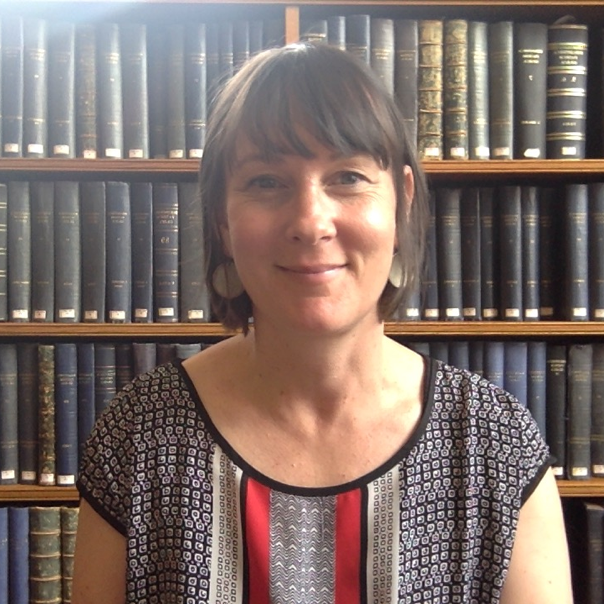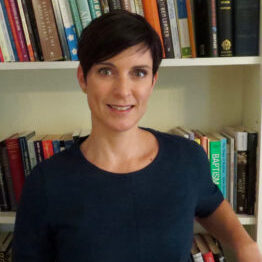Episode Transcript
[00:00:04] Speaker A: You're listening to by the well, a lectionary based podcast for preachers recorded on the land of the Wurundjeri people.
I'm Robyn Whittaker.
[00:00:17] Speaker B: And I'm Howard Wallace.
[00:00:18] Speaker A: Welcome to the by the well podcast. Today we're discussing some of the readings for Pentecost. Week ten. We're going to do a deep dive into the second Samuel eleven 115, reading psalm 14 briefly, and then the gospel reading John 6121. And if you're listening in the car or where there are younger ears around, or depending on your own experience, I just want to warn you that this text does raise questions about sexual violence. So if that's difficult for you, you might not want to listen to this episode.
So, two Samuel chapter eleven is the start of a long narrative. We'll continue next week. It's known as the David and Bathsheba story, and this is a story not without its controversy in interpretation.
In some strands of tradition, it's been interpreted as a story where Bathsheba is this beautiful seductress who knowingly puts herself in the sight of David because she wants to seduce the king and gain power. And that's often reflected in art, where you see the art of Bathsheba on a rooftop, sort of, you know, naked before the king.
Another strand of interpretation, and the NRSV title actually does this, calls this adultery. David and Bathsheba commit adultery, which implies it's an equal kind of decision, an equal power. I'm not a fan of that. We'll talk about why. And more recently, feminist and womanist scholars have really looked at the power dynamics of this and called it David's rape of Bathsheba.
So we'll get to unpacking some of that and what's actually in the story and what isn't. But, Howard, I want to ask you, talk us through this, has got its own sort of literary construction. It's doing really important work in the story of David. Can you talk to us about the shape of that?
[00:02:16] Speaker B: Do that. And I think it's actually important to start with, hear or read what the story is actually saying and that, and at least treat it in its own terms before we get onto any questions about sort of moral judgment or assessment of it.
I think this week we've only got the beginning of the story, as Robin has already said.
But really to appreciate the story in what I think is actually the beauty of its telling, because it really is quite a clever piece of literature.
[00:02:49] Speaker A: Yes, it is.
[00:02:50] Speaker B: We need to go back into the earlier chapters of two, Samuel, and back into the story of David as his rise as king.
That's contained in those earlier chapters, principally chapters one to ten. In those chapters, what we read is of a David who is successful in many ways. He is a pious king and he's favored by Goddesse. We have, within those chapters, we have the story of his defeat of the enemies of Israel, namely the Ammonites, whom Saul couldn't defeat. So already he's one up, if you like, on his predecessor.
[00:03:34] Speaker A: Yes.
[00:03:35] Speaker B: He also takes the lawful heir to the throne of Saul, which is a young boy named Mephiboshethe, who is the son of Saul's son Jonathan, who was killed along with his father into the palace in Jerusalem. That sounds a nice, compassionate sort of story, although I think there are some political dimensions to it.
[00:04:00] Speaker A: Yes, I'm sure beyond that.
[00:04:02] Speaker B: And then there is the great chapter seven of two, Samuel, which is a story of God making a covenant with David. And that's followed by David's prayer, a very pious prayer, of course, to God himself. So everything paints David up to this point as being successful, pious and favoured by God.
As I said, there may be some ulterior motives behind those stories in justifying David's ascent to the throne, but that's sort of put aside. What we're hearing quite strongly is a very positive attitude toward David. But then we come to chapter eleven, verses one and two. In the spring of the year, the time when kings go out to battle, David sent Joab, etc. Etc. But David remained in Jerusalem.
[00:04:54] Speaker A: Yeah. So right from the start, not a kingly action.
[00:04:57] Speaker B: It's not a kingly action and it's a signal, I think, right at the start that something is going wrong or something is about to occur, which is disastrous. And of course, that, as we read on and find out, is a gross exercise in lust and the use of power. The abuse of power.
[00:05:15] Speaker A: Yep.
[00:05:18] Speaker B: And in a way, you know, I think even if we just follow the story through, if we're thinking about how to preach on this and to expound and bring to the surface some of the literary elements of the story, it has the sermon contained within it about the abuse of power.
[00:05:37] Speaker A: Okay. Yeah. In all sorts of ways.
[00:05:40] Speaker B: Anyway, the beginning, something's going to go wrong because we know David's not doing what kings normally do. And then as we read on, as he's out on the rooftop in the afternoon and he spies Bathsheba, we learn a few more things that indicate sort of this thing is, or something is unfolding that is, is not good.
He spies Bathsheba, in a way that sort of suggested inappropriate. And then when we're introduced to her, when he's introduced and told who she is, he's given her name, Bathsheba, but immediately she is connected to two men already, Eliam, her father, and Uriah, her husband.
[00:06:24] Speaker A: Yeah. And is it worth saying, you know, it's typical to introduce women by their male relations, but it's unusual to get both right.
Making a strong point in the text.
[00:06:35] Speaker B: It's making a very strong point that she belongs, if you want to use that language, to two other men, not, of course, to David, who's going to.
[00:06:45] Speaker A: And Howard and I are acknowledging, for those of you listening, when we use language of belong, you know, this is a patriarchal world where women are part of the property, and we see that dynamic play out in the term, in the way she's passed around in this almost dehumanizing, you know, as an object to be owned.
[00:07:03] Speaker B: And the writer's writing from that perspective, too. So we need to appreciate the point they're coming from. And then the other thing is, we're told she's purifying herself. So on these sort of three counts, what is about to happen is thoroughly inappropriate, even in the context of their ancient world, of their day.
[00:07:23] Speaker A: Yep. And before we move on, I want to. I, for years and years read this story, and I think, influenced by art and the way it's depicted, that bathroom, Sheba herself was on a roof. So this idea that she's put herself in view. Now, I believe there's some evidence that people did bathe on roofs because that's where the water system was. But there were usually some sort of walls and privacy screen type things.
But David's the one on the roof, and, of course, the palace of the roof is higher than anything else around. So he's the one up high, looking down, as you suggest, gazing perhaps quite voyeuristically or inappropriately into her private domain.
[00:08:03] Speaker B: Oh, yes. Yes. So it is an intrusion on his part. So he's the one who's doing wrong at every step of the way.
[00:08:12] Speaker A: Yes.
[00:08:13] Speaker B: And also we need to remember that he's the one who has the power. He's in control.
[00:08:17] Speaker A: Yeah, yeah. He's the king. He can demand lives.
[00:08:20] Speaker B: Yes, he can, very much. But interestingly enough, I mean, after he has away with her and she's returned to her home, she sends a message because she's conceived, apparently.
[00:08:32] Speaker A: Yes.
[00:08:33] Speaker B: Interesting sort of understanding of the text. But we'll move on because what she sends is a message to him, that really changes the whole tenor of the story. Just those little words, I am pregnant.
And then we see this sort of interesting flip by David. This is David who's been successful as a warrior, is the. The king very faithful, etcetera. And now we turn to a part of the story where we see that David is thoroughly an ineffectual plotter. He can't get himself out of this thing.
[00:09:11] Speaker A: Yes, but, gee, he tries, doesn't he?
[00:09:13] Speaker B: Well, he tries.
[00:09:14] Speaker A: So he's done wrong and now he's going to dig the hole deeper by trying to cover up his wrong.
[00:09:20] Speaker B: Yes, he's trying to cover up, but even in that context, he's failing miserably. So the whole thing is reversed. And it's almost as if he becomes a bit of a comic character in this thing. Because no matter what he tries to do to Uriah, when he has Uriah sent back from the battlefront, first of all to suggest he goes home and enjoys all the pleasures, I mean, just the comfort of his house as well as being with his wife. That's right. Then he tries to get him drunk. But in all of this, Uriah remains faithful to Israel and are loyal to the king even though he's a foreigner, which is sort of underlining the whole thing. And yet on the other side of it, we've got David, who now all of a sudden has become unloyal to his soldiers, unfaithful to God and a plotter in the worst. So in a way, the story's trying to open up. This sense of deception itself can carry its own sort of abuse within that because David gets caught up in his whole process.
[00:10:29] Speaker A: I think that's right. One of the things I noticed, reading this again, if we were to think about how you'd stage this, even in terms of capturing what the narrative's doing, that framing of kings going out to battle. And David's not. He doesn't leave his house through all of this. He's in his house or palace and scheming and plotting from there. You know, it almost adds a layer of a cowardly hiding in the house. And he's still got power. He's dictating all the action around him.
But like you say, Uriah is acting as the moral. You know, I won't enjoy my house and I won't lie with my wife when my soldiers can't do this because they're still and even the ark of God. He says, the ark of God is in a tent. Why would I go home to my house?
[00:11:14] Speaker B: Yes, exactly. I mean, I think in a way, way what it's doing. I mean, David is trying to use his power as king, his authority to manipulate the situation. Well, first of all, manipulate Bathsheba and then manipulate the situation for his own sort of benefit. But what's emerging is this whole sense of moral power and even personal sort of power are being elevated in the person of Uriah and what he does over against sort of this power that sort of just simply an exercise of, of might and strength and authority.
[00:11:51] Speaker A: I think that's right. And, you know, as you've just done, Howard, I think if people are going to preach on this text, the retelling of the story, pointing out those dynamics as one goes, and the careful retelling, so not the retelling that inserts words or turns bathsheba into something she's not, or, you know, so the careful retelling that is attentive to the power dynamics in the text that you've named. And I was struck again that the active verbs in, I think it's verse four or so, you know, when David sends, you know, he sends messages, you know, he, he sees, he inquires, he sends, he takes, he enters like, you know, this is all his action. Yes. And then we're going to see when he tries to get Uriah to do the same, as you've said. Yeah, Uriah will not do all these things, even though they're presented as options.
[00:12:43] Speaker B: Some irony in all of this, too. I mean, one of the things I was also going to add is when he gets Uriah sent back, Joab, his general, sends Uriah back to David. And when Uriah comes to David, David asks him. Now in the English, it's a bit weak. I think David asked how job and the people fared and how the war was going. That's in verse seven. But the way you ask in Hebrew or in ancient Hebrew, how things going is hashalom, is there peace to whoever? And you know, what an irony, you know, is because later on there's going to be the question about when he's telling Joab, don't worry about it.
There's no peace in this sort of context. And it's raising the question, too, because this story with next week's sort of final bit to it is beginning to become the key point which the whole of David's reignite topples over. And from now on, all we're going to hear about is warfare and conflict between his sons who want to take the throne, who want power and over against him too.
[00:14:02] Speaker A: Yeah. So, I mean, I think that's helpful because by framing it as you have with the first ten chapters and the story of David as the successful king and he is remembered as the great king.
[00:14:12] Speaker B: Oh, yes. One of the interesting things about David.
[00:14:16] Speaker A: But I mean, in the literary structure, this chapter really is a turning point. And it's interesting that the turning point in the way the story is told is in moral terms. Right. It's his moral failing before God, his failure to follow the laws of God. And we're going to see the prophet Nathan confront him with his sin next week.
That really becomes almost that. Yeah. The turning point is its success. And, of course, when chronicles retells much of the kingly story, they leave out this story.
[00:14:50] Speaker B: Oh, yes.
You get a much more cleaner picture. Cleaner, yes. Of him and. Well, and Solomon, too. And then, of course, you've got David as a psalmist, the pious singer of the psalms, and he becomes the messianic forerunner, in a way.
[00:15:08] Speaker A: Yeah. Jesus is the son of David.
[00:15:10] Speaker B: You've got all of those sort of positive things about David, and this story is really undercutting them that here's a person who is not as sorta rose. He is.
[00:15:21] Speaker A: I know. And I mean, so for me, as a preacher, thinking about what we do with these kinds of texts, and they're not actually often in the lectionary, you know, these more problematic texts, in a way, you know, why is the Bible left it in here? What do we preach from it? I mean, yes, we, I think, should name and condemn David's action. It is an abuse of power.
One of the things I wonder about with stories like this is how we can think about the text as holding up a lens to us. So, you know, what it might prompt in us. You know, it's very easy to get on our own high horses and go, well, David was despicable, you know, and in our current world, we'd cancel him. You know, there's nothing good about David. Well, that's not actually. No, it's not true how the Bible remembers him overall, but in this passage, he is despicable, I think.
But we might wonder about, you know, when we abuse power.
[00:16:19] Speaker B: Oh, yes. And how easy it can be, how.
[00:16:22] Speaker A: Yep. How seductive it can be to abuse our power. We might wonder about how we've been complicit in the abuse of power by others. So here you've got a whole royal institution around David doing his bidding.
And again, we might have compassion for those characters that really probably had no. When the king says, go do this you go do it.
But still, they're complicit in the abuse.
So I don't know, Howard, if you have thoughts, I have lots of thoughts about how we. How we preach these kinds of texts, what we might want to name, what we might want to be careful about saying.
[00:17:01] Speaker B: Well, I mean, at least on the issue of power, I mean, we've got enough sort of examples in the world these days.
[00:17:07] Speaker A: Yeah, we do, unfortunately, yes.
[00:17:09] Speaker B: About power and its abuse and even simple lying about what is the case.
[00:17:15] Speaker A: Within what is true, what is within a country.
[00:17:18] Speaker B: Yep, all of those sort of things. And yet I think there's an interesting point on the other side that God is. Well, if we talk about David as the faithful psalmist and the impression given as messianic forerunner, etcetera, I mean, there's a sense in which God still uses this figure to portray something and to promote sort of a sense of understanding and knowing goddess. So I think there is a sort of comfort in inverted commas in the end of it, that even though we are all, well, in our context, often complicit in sort of the abuse of power within society, even if not in our own lives, we've got to watch that, too.
There's a sense in which God does not abandon us in that process. And God can, I think, use people who are not always doing things the way that you would expect a follower of God to do. That's not to say you condone sort of, that sort of activity beforehand, but.
[00:18:25] Speaker A: Yeah, no, I think it's not a hopeless situation. Yeah. For me, that's the, you know, the grace. The good news in these kinds of stories is that no one, even David, is reduced to the worst thing they've done. And, in fact, this might not be the worst thing David's done, but it's in there. It's up there with these other abuses of power, but that God can work in classic terms through us, despite our sin.
[00:18:58] Speaker B: The other thing to notice, I think, is what happens to David in this sudden shift once he learns that Bathsheba is pregnant. He becomes ineffectual in that plotting and really a victim of his own sort of manipulation.
And I think it's saying something about that, too, that we, like David, can work our way in, even deeper into the mire. I think once those elements of truth and faithfulness are broken.
[00:19:33] Speaker A: Yeah. There's a podcast by two scholars in New Zealand called the Bloody Bible podcast, and I'll put a link in the notes and they talk about this story. I think that episode's called David's entitlement.
One of the things they look at is how in the previous chapter, they talk about David feeling emasculated because of what's happened.
And again, these are modern words used to try and sort of reinterpret ancient text. But, you know, there's something here to me, too, about how we think about masculinity, which we know is a massive issue in our current world with rising, unfortunately, despite the progress of feminism, rising sexual violence against women, that David feels emasculated. And this kind of taking of bathsheba is a way to reclaim some kind of masculinity. But the minute she utters the only words she speaks in this chapter, I am pregnant. It's almost like he is emasculated again in his inability to actually fixed the problem as he sees it.
I want to raise questions, too, I mean, again, with caution, that for preachers, if you're going to wade into matters of consent and sexual violence, to do so carefully and to do so knowing, I think, how it is. You've so beautifully framed for us that these are contemporary terms. So our first task is, you know, we read the text in its own worldview, acknowledging that those dynamics. Yes, the power dynamics are clearly there. The abuse of power is clearly there. You know, modern words like the conversations we've had in the last, you know, decade about consent and are kind of newer conversations. It's not to say we shouldn't put them, you know, in conversation with one another, but it does raise questions for me. And we don't have the answers. We don't know how Bathsheba felt silent. Right.
[00:21:24] Speaker B: I mean, that's part of the literary. The writers sort of. Gil, I think, keeping her silent in this context to sort of. He wants to focus on David and the abuse of power.
[00:21:34] Speaker A: That's right. So we might want to critique that. That she's rendered invisible. If you keep reading in chapters ahead, she will reclaim some kind of agency and power. I mean, and again, we know this can happen with, you know, women or the disempowered will sometimes find ways to claim power back after being.
[00:21:53] Speaker B: She becomes a plotter in her own right.
[00:21:55] Speaker A: Yeah, that's true.
[00:21:55] Speaker B: In order to get another of her sons on the. Onto the throne after being.
[00:21:58] Speaker A: Exactly.
[00:21:59] Speaker B: Yeah.
[00:22:00] Speaker A: So it's complicated. Right.
[00:22:02] Speaker B: I think one of the things is, I mean, this sort of raising of issues like the abusive power of men against women in today's society is a rightful and proper thing. But how do you do it in relation to a text like this. I mean, I think part of the problem is that people start to read back into the text the sort of things that are issues today, you know, about consent, et cetera, et cetera. And yet it's not in the text itself. No, but I think if you do sort of play with and work on the whole business of David's abuse of power, then I think you can rightly sort of then ask questions, well, how do we abuse power within our context? And you sort of. You're getting to the same end, but I think you're doing it in a more honest way. In a sense, instead of trying to push back into the text things from our society, you're letting it speak to itself and then coming in and asking questions, well, where do we stand? What's going on in our world?
[00:23:04] Speaker A: Yep. And how do. And I think. Yeah, I agree with you. We can get to the same point of clearly being out a name because of the way the biblical story is so carefully told and also lament and confess in the rest of our services that this kind of abuse of power by men continues at astonishing rates, you know, not just by kings, but by, you know. And that is something we should all lament and.
[00:23:31] Speaker B: Oh, yes.
[00:23:32] Speaker A: Look, we'll continue this conversation next episode, Howard, because the story is going to go on.
[00:23:37] Speaker B: I just wanted to say one word about psalm 14.
[00:23:39] Speaker A: Yes.
[00:23:40] Speaker B: Excuse me, psalm for the.
I think it's a very apt psalm for this context and probably could be used maybe within the liturgy somewhere. I mean, it begins with a line fools say in their hearts, there is no goddess. And I think we need to be careful of the translation of that word fools, because, I mean, we might think this as, you know, at the least, sort of people who are just silly or stupid in their activity. Or we might think that from that, you know, people who are atheist or are themselves fools in a way. But I don't think actually it's talking about those sort of people.
[00:24:22] Speaker A: Right.
[00:24:22] Speaker B: Because I think the word fools as comes sort of evident, I think in the second half of verse one is really talking about those who are corrupt.
[00:24:32] Speaker A: Right.
[00:24:33] Speaker B: You know, it's. It fits the David sort of thing, really.
[00:24:37] Speaker A: Quite. The corrupt saying they have your own.
[00:24:39] Speaker B: Way is saying there is no God, even though he's said wonderful prayers back a few chapters earlier.
[00:24:45] Speaker A: That's right, yes. He's almost behaving like a God himself. There's no one watching over him.
Yeah. So this could be a good way to. Or give us some language for the rest of the service to.
Yeah. Even verse two there, you know that God looks down from heaven. I mean, it's imagining God in the heavenly court. It again reflects the worldview at the time.
But this idea that God does see, and this is something that feminists will also recover in the text, like Bathsheba might be silent and invisible, but God sees. Oh, yes, yes.
[00:25:17] Speaker B: As we find out.
[00:25:18] Speaker A: As we find out. Yeah.
Well, let's move on to John chapter six.
So, again, in the lectionary, preachers who preach regularly might want to look ahead. We've got the first 21 verses of John chapter six today, and we will continue in John chapter six next week. So we've got two weeks where we've got these sort of larger narratives you could think thematically across a couple of weeks. This is, of course, John's version of the feeding of the 5000 and the walking on water that was left out of Mark's reading last week.
[00:26:01] Speaker B: Yeah, they're in Mark, aren't they?
[00:26:03] Speaker A: They're in Mark and in the same order. Yes, exactly.
But John adds his own little features.
So let me name a couple of them and we can think about what they mean.
In John's version. We notice, firstly that Jesus goes up a mountain in verse three. So we should think about that imagery, noting that nothing is without some symbolic meaning. In John.
It's Passover, it's near Passover and he's in Jerusalem. So that's a completely.
Or he's near Jerusalem, but it's a completely different setting to the kind of wilderness setting we get in the synoptic gospels.
We might notice that Philip and some other named disciples have a prominent role. And I love verse six here, where Jesus has foreknowledge. This is quite typical in John's gospel, where Jesus sort of says, you know, asks a question to test Philip about where are we going to get this food? But Jesus already knows, of course. You know, I never know what I.
[00:27:06] Speaker B: Think is a trap in itself, assuming that, yes, I mean, we get rid of the humanity of Jesus very quickly.
[00:27:13] Speaker A: I agree. I'm always not quite sure what John's trying to achieve with such comments.
The other gospels do have reference to five loaves and two fish, but it's John who adds the little detail that a lad or a boy has them and the loaves of barley, we're going to see that's a connection.
And when it comes to actually breaking the loaves, maybe surprisingly for some lovers of John's gospel, I think less eucharistic overtones. There's no blessing. There's simply a giving thanks and a sharing.
And then, of course, because these stories are usually all about Jesus identity, we have him proclaimed a prophet because of the sign he does, and then they want to make him a king at the end.
So that's a long list. We need to unpack some of those things. Howard, what did you notice about this reading or what? What do you want to say about it?
[00:28:05] Speaker B: Well, the one thing I want, sort of, there's a sense, which may come in a little after this thing, that after the passage that's set for today, is that the miracle itself is not the center of it at all.
That actually even the story, which is why, presumably, the lectionary writers go to John at this point rather than, say, carrying on with Mark. As you might expect, in verse 26, Jesus answers a question very truly. I tell you, you are looking for me not because you saw signs, but because you ate the fill of the loaves. There's this sort of conflict, well, this stress, even within John, that, you know, you can be attracted by something, but. But actually you need to go far deeper in this one case. And I think that's what sort of keeps coming through. The other thing is when the disciples, in the end, ask the question, who is this?
Yeah, it is I, equivalent to the old I am of the exodus reading.
[00:29:17] Speaker A: Yes, the ego o me. In Greek it is I am, do not be afraid. And again, unlike in the synoptics, when Jesus walks on water towards the boat, we get told they're terrified. There's lots of language of fear here we have Jesus says, don't be afraid, I am. And then we're told that they were happy to take him into the boat. They wanted to. So, yeah, there's a slightly different dynamic going on there. The disciples are less stupid in John for the most part, and I think they recognise, maybe not fully, but they seem to recognize he's a prophet, at least in their midst in some ways, and then that will develop into kingship by the time we get to the cross.
[00:30:01] Speaker B: Yes.
Already the people are asking or wanting to make him a king at this early sort of stage.
[00:30:07] Speaker A: That's right.
[00:30:07] Speaker B: But there's a question. Do they understand what the kingship is? And do the disciples, in even inviting him into the boat, are they really understanding what the symbolism is of what's happening around them?
[00:30:19] Speaker A: That's right. So, I mean, I think this feeding in John in particular does function to set Jesus up as a prophet very much in continuity with the prophets in the older testament. So the reference to Bali and the mountain the commentaries will point out, echoes Elisha in two kings four, who also, and of course, he gets his stuff from a boy. Yes, he gets his stuff from a boy, and he's got barley loaves to share. And then, of course, Moses with the manna. And that will get picked up as the story continues. There will actually be an explicit reference to Moses and Jesus juxtaposing the heavenly bread or the eternal bread he is not just brings. So Moses, we're going to get that next week, actually pointing ahead.
But it's already here in the way the feeding story is constructed. I think that Jesus will feed the people, yes, but it's ultimately in service of something greater, which is him saying, I'm actually the bread, you know, and it takes me back to John four with the samaritan woman at the well, where we get a similar conversation about water, where Jesus says, give me a drink.
And the conversation that follows on is, well, if you knew, you'd ask me, because I can give you living water or eternal water, you know, water that will never make you thirsty again.
[00:31:40] Speaker B: Putting Jesus up as the one through whom our relationship with God is sort of focused through whom comes even though bread. Is it true that in Mark's gospel, bread is something different in this context? Because I had read somewhere that bread actually stood more for the gospel itself. The message here, the bread is Jesus.
[00:32:04] Speaker A: I don't have my greek in front of me, so I can't tell you if the words are different. I didn't think to look for that.
But I do think in John.
Yes, I think that dynamic would be true for those two gospels in Mark, the bread or the thing that gives life is Jesus words.
John will make Jesus himself like, you know, we're going to get towards the I am the bread of life statement. Jesus himself becomes, yeah, I don't know, the thing that feeds. Yes, that includes the word. So, I mean, and again, when we preach this and point out Jesus as prophet in the tradition of Elisha and Moses, this is a stress on the continuity. This is not replacing and making redundant. It is saying that God is continuing to interact and feed God's people in a way that God has always done.
And now we've got a. But also Jesus embodies that more fully.
[00:33:06] Speaker B: But there's still a need to be careful. I mean, in terms of preaching from it. Just how do we portray Jesus as the bread that feeds us? Because there are a lot of people in the church that sort of can understand that in a rather simplistic sort of way. And I get the sense that contrary to what John's gospel was on about in this chapter is that we begin to focus on, well, in that case, the miracle rather than the substance that's deeper within the process. So we can sort of think of Jesus in rather sort of romantic sort of terms and not sort of really understand what that nature of that feeding is going on.
[00:33:50] Speaker A: Yeah. And I think maybe the last thing I'll say about this is we should also notice, we're calling this a miracle because it falls into that category for us. But John's language is, this is a sign, and these signs in John's gospel are things that point to God. So, you know, John, I think, emphasises that probably more than the synoptics, in explicit kinds of ways, that Jesus is sent by God and Jesus points people to the father and is that conduit in a really particular way. And the sign does some of that.
[00:34:20] Speaker B: Work that's going to keep coming out in the rest of the chapter?
[00:34:23] Speaker A: It is.
Thank you for listening by the well is brought to you by Pilgrim Theological College and the Uniting church in Australia. It's produced by Adrian Jackson. Thanks for listening.






